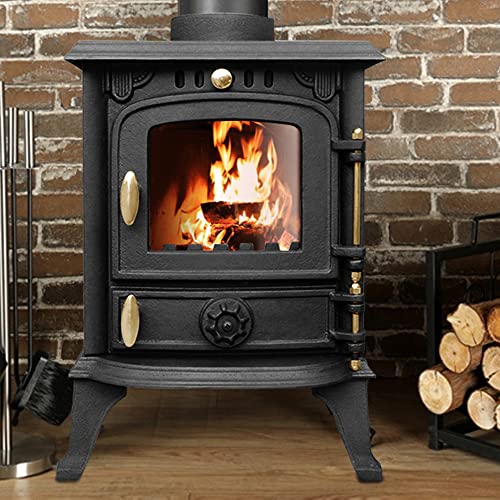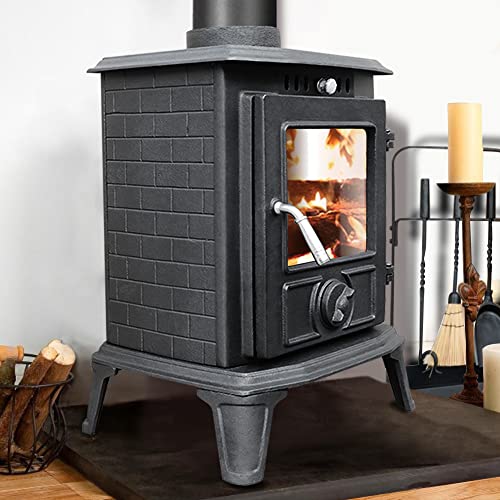Here's An Interesting Fact About Defra Exempt Wood Burner. Defra Exemp…
페이지 정보

본문
 Choosing a Defra Exempt Wood Burner
Choosing a Defra Exempt Wood Burner Smoke Control Areas are the most commonly used classification for UK cities and towns. If you reside in a Smoke Control Area and want to install an appliance, you'll require a Defra approved stove. You can identify them by their Defra approved logo.
Smoke Control Areas are the most commonly used classification for UK cities and towns. If you reside in a Smoke Control Area and want to install an appliance, you'll require a Defra approved stove. You can identify them by their Defra approved logo.The stoves that are not subject to Defra are designed to prevent the fire from burning. This reduces the amount of smoke. They also burn fuel more efficiently.
What is a Defra exempt stove?
A Defra Exempt stove is a wood-burning domestic heating appliance that has passed the tests laid out by the Department for Environment, Food and Rural Affairs. The Defra Exempt label is applied to stoves that have been tested independently and meet the strict criteria for emissions. Defra exempt stoves are able to be used in Smoke Control Areas.
You cannot burn wood without a DEFRA-approved stove in a place where smoke is controlled. Installing a non Defra Stoves Ratings approved stove in a smoke control zone is a violation of the Clean Air Act. You could be charged.
From the outside, there's no distinction between a Defra approved stove and one that hasn't been awarded this status. However, there are some things that stove manufacturers do to ensure that their appliances are DEFRA exempt. The most obvious difference is that the burners on a DEFRA approved stove are made not to deprive the flame of oxygen, as this can cause it to smolder and produce excessive amounts of smoke.
To prevent this, stove manufacturers will typically adjust the air vent at the top of the Defra approved stove. This will stop you from closing the vent completely, as this would cut the air supply to the fire. The adjustment is typically an incredibly small screw located on the top of the stove, below the stove's base or on the back of the stove.
Stoves that are exempt from Defra exemptions can also be multifuel stoves and can be used to burn wood, as well as other fuels. This is a great option if you live in an area that is designated as a Smoke Control Zone but you don't want to be bound by to be restricted to only using authorised fuels. Some stoves with Defra exemptions can also be equipped with a 5" liner for wood burning (if the manufacturer doesn't insist on a bigger size). This is a wonderful benefit for those who want to install woodburning stoves but are concerned about local regulations regarding smoke.
What are the advantages of a Defra approved stove?
Defra-approved stoves offer many benefits that include the ability to comply with local regulations and provide a warm and cozy fire. For instance, they tend to be more efficient than non-Defra certified stoves and therefore reduce the amount of carbon emissions when they are used. This can lead to significant savings on your heating bill. Stoves that are approved by Defra are also simpler to use and have easier controls than non-approved ones.
When you are looking to purchase an electric or wood-burning stove, there are different aspects to take into consideration, including your requirements for heating, aesthetic preferences, and long-term goals. When choosing a stove it is important to consider these factors. A defra-exempt stove can be ideal for those who live in areas that are smoke-free. They have been thoroughly tested and are in compliance with strict environmental guidelines and can reduce the impact your stove has on the environment.
In addition to being environmentally friendly, Defra approved stoves are made to offer superior combustion and flame distribution. This ensures that the fuel burns evenly, producing a more pleasant and consistent flame. In addition, they tend to be more durable than non-Defra approved stoves, meaning that they last longer and are able to stand up to higher temperatures.
In addition is that the majority of Defra approved stoves can be used with a 5" chimney liner, which is ideal for homes located in smoke-free areas. However it is crucial to note that if you plan to use your stove with wet wood or other damp fuel, this will still cause smoke nuisance and possibly result in a prosecution by the local authority.
To get Defra approval, stove makers are required to make modifications to the appliance in order to limit how much air it can be starved of during the process of burning. The air control at the top is usually altered to prevent the complete closing. The air supply that is shut off to a stove for too long can cause it to smoulder instead of burning properly, which in turn will result in nuisance smoke.
What is the Difference Between an approved Defra Stove and a Non-Defra Approved Stove?
A stove that is approved by defra will let you burn wood legally in a Smoke Control Area. However, nondefra-exempt stoves isn't. This is because stoves that are Defra approved have been tested to show they can safely and effectively burn wood in smoke controlled areas without releasing excessive levels of smoke. If you reside in an area that is smoke-free, you can use the new stove with no risk of fines.
A stove that is approved by Defra is more energy efficient than other types that produce more heat and emitting less harmful emissions into the atmosphere. This makes them an excellent option for homeowners looking to save money on heating costs and are concerned about the environment.
Stoves that have been Defra approved will typically be advertised with the DEFRA endorsed stoves Approved logo which is well-known and is used by the stove industry. You can also find out if the stove is Defra exempt by looking at the specification details or by visiting the manufacturer's website for more details about it.
There are many styles available when selecting a stove that is Defra-approved. Some are more traditional and look great in an old fireplace chamber or inglenook while others are more modern and would be ideal for a modern living space.
Also, make sure that the stove you pick is Defra exempt by ensuring that it is listed on DEFRA's list authorised appliances or by checking that it has the DEFRA exemption logo. Many manufacturers advertise their stoves as Defra exempt even though they haven't been tested to prove that they are. This is because it is easier to sell a stove with the Clean Burn technology than to test it and take the time and expense to go through the process of becoming Defra exempt.
A stove that is Defra exempt will ensure that the wood that is used to power it is sustainable that has been properly seasoned, dried and seasoned before it is burned. This will mean that it will not produce huge amounts of smoke which is better for the environment and also helps to keep the chimneys and flue systems in good condition for longer.
What is the difference between the Defra exempt stove and a non-Defra exempt stove?
When you are deciding on the right stove for your home, there's a lot of information that you should consider, such as design, heat output, and fuel type. You might have seen on our website that many stoves that burn wood and multi-fuel are DEFRA exempted or DEFRA approved. This jargon, to the average homeowner may appear to be nothing more than a term used to sell products however, it can have significant implications for those who live in smoke controlled areas.
To ensure compliance with the laws against the sale of logs in Smoke Control Areas Defra exempted wood burners have an internal mechanism which prevents you from closing the air supply valve completely. This is because if you decrease the air flow to the fire too much, the wood will start to smoulder and produce excess smoke, which will be in violation of the law. To avoid this you must ensure that the wood in your stove is dried to a certain degree prior to putting it on the stove.
You can also use an exempt DEFRA wood burner in an Smoke Control Area, if you only use approved fuels that are listed on the DEFRA site. These include gas, semi-anthracite and anthracite as well as steam coal with low volatile. If you install a stove that is not DEFRA-compliant in your house and burn wet wood, or other fuels that are not on DEFRA's list, you could face penalties of up to PS1000.
Even if you do not live in a Smoke Control Area a DEFRA exempted wood stove is still an excellent choice. They are more environmentally friendly and neighbor-friendly since they operate without producing polluting smoke. They also have higher efficiency, and will keep your chimney and flue cleaner for longer. However, it must be noted that by 2022 all new stoves have to meet the more stringent Ecodesign regulations that set minimum efficiency, OGV and NOX ceilings and have emissions limits that are significantly more than the ones currently in place for DEFRA exempt appliances.
- 이전글The Leading Reasons Why People Perform Well In The Defra Exempt Multi Fuel Stoves Industry 24.08.25
- 다음글Discover the Thrill of Online Casino 24.08.25
댓글목록
등록된 댓글이 없습니다.

